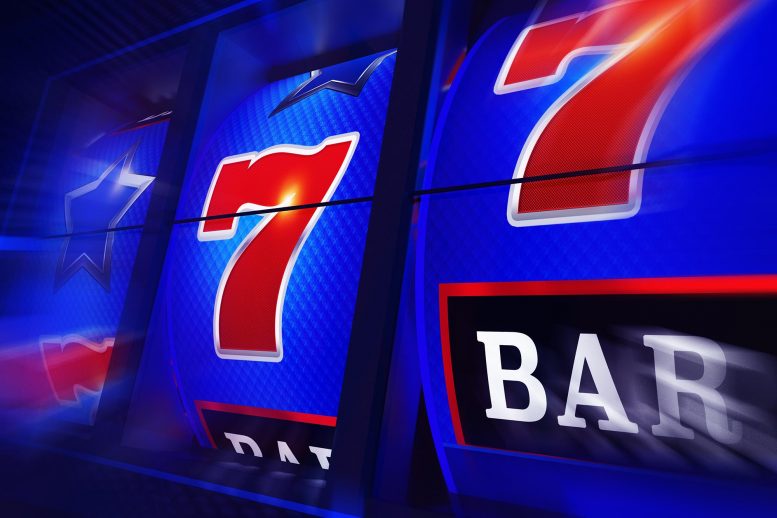
A new study by University of Alberta researchers is examining the relationship between near-miss events and persistent gambling behavior.
New research suggests there may be no relationship between near misses and continued play.
You enter your quarter into the slot machine and hit the button. Two lemons and a cherry appear in front of you—close to a win, but not quite. For nearly 70 years, researchers believed that near-miss events like these would encourage you to continue gambling. But new research from University of Alberta scientists suggests that the near-miss effect may not exist at all.
The project, led by recent Ph.D. graduate Jeffrey Pisklak and MSc graduate Joshua Yong, examined the relationship between near-miss events and persistent gambling behavior in both human and animal subjects.
“Across species, we were not able to replicate the finding that near misses caused an increase in the rate of play, despite a widespread belief that this is what should occur,” said Pisklak, who conducted the research under the supervision of Marcia Spetch, professor in the Department of Psychology in the Faculty of Science. “Moreover, our review of the literature suggested that there are problems and inconsistencies in the previously cited evidence for a near-miss effect.”
In fact, while near-miss events have previously been found to affect brain activity and other subjective measurements, there seems to be no conclusive, replicable evidence to show that near-miss events encourage gambling persistence. However, Pisklak added, there are still many other factors that do encourage people to continue gambling.
“Casinos are very effective at getting people to gamble their money for a plethora of reasons—it just happens to be the case that near misses may not be one of them for most people,” added Pisklak. “The fact that we weren’t able to replicate the near-miss effect doesn’t mean that people are any less vulnerable to exploitation by other means.”
As for the next step, Pisklak encourages his fellow scientists to continue examining this topic. “No study is perfect. We hope people will attempt their own replications and in particular test other populations—such as problem gamblers—to determine the generality of our findings.”
Reference: “The Near-Miss Effect in Slot Machines: A Review and Experimental Analysis Over Half a Century Later” by Jeffrey M. Pisklak, Joshua J. H. Yong and Marcia L. Spetch, 14 September 2019, Journal of Gambling Studies.
DOI: 10.1007/s10899-019-09891-8









This short article posted only at the web site is truly good.
I believe it depends on the person. How much he is gambling and how much he is ready to spend until a big win. This measure is different for everyone. I wouldn’t just give it up after a few losses.